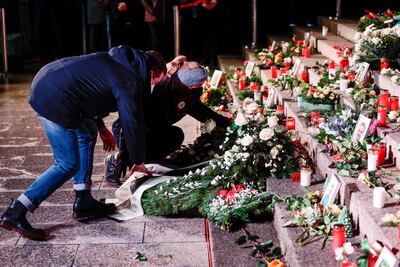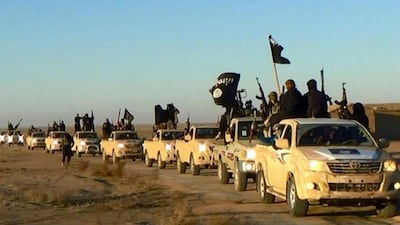Jailed ISIS fighters in Europe may have been radicalised further in prison by the time they are released, the head of Germany’s domestic intelligence service has said.
Thomas Haldenwang sounded the alarm over extremists due to be released in 2022 after serving sentences for joining the terror group.
As Germany marked five years since an extremist slipped through the security net and killed 12 people at a Christmas market, Mr Haldenwang said the state would have to “examine each individual case” of militants going free.
“We need to know what’s happening in prisons, who is being radicalised further,” said Mr Haldenwang, the head of the Office for the Protection of the Constitution.
Radicalisation “often does not let up” in prison, he told German media.
Sunday marked the fifth anniversary of the Christmas market attack in Berlin, where Anis Amri drove a lorry into pedestrians in one of Germany’s worst atrocities in modern times. ISIS claimed it was behind the attack.
A final report released in August this year revealed how security failures let Amri carry out his attack despite him being known to intelligence services.
At a ceremony on Sunday, German President Frank-Walter Steinmeier said authorities had a “duty to clarify the mistakes” that led to the attack.
Germany “must correct these mistakes, and it must further investigate when there are new findings,” he said.
Government figures show there are hundreds of people in Germany considered to be dangerous religious extremists.

As of April, there were at least 101 such people in prison in Germany along with 22 other “relevant people”. There were 81 Germans with links to ISIS imprisoned abroad, mostly in Syria.
About 5,300 people are thought to have left Europe to join ISIS in Syria and Iraq since 2012, of whom about half have since left or died, EU estimates show.
Countries including France and Belgium have repatriated children from the Middle East, while Kosovo has about 242 returnees.
In a letter to German Chancellor Olaf Scholz, relatives of the Christmas market victims called for new inquiries into possible accomplices of Amri, who was originally from Tunisia and killed in a shootout days after the attack.
The letter called for the “dignified treatment for those affected”, after criticism of how authorities dealt with the grieving relatives.
Mr Steinmeier acknowledged on Sunday there were “failures in the support offered to those left behind”.
The attack “left a deep rift… in all our hearts,” he said. “It was aimed at our way of life in peace, freedom and democracy.”
Mr Scholz said the attack had buried itself deep in Germany’s collective consciousness.
“The state must be watchful and protect its citizens,” he said.


